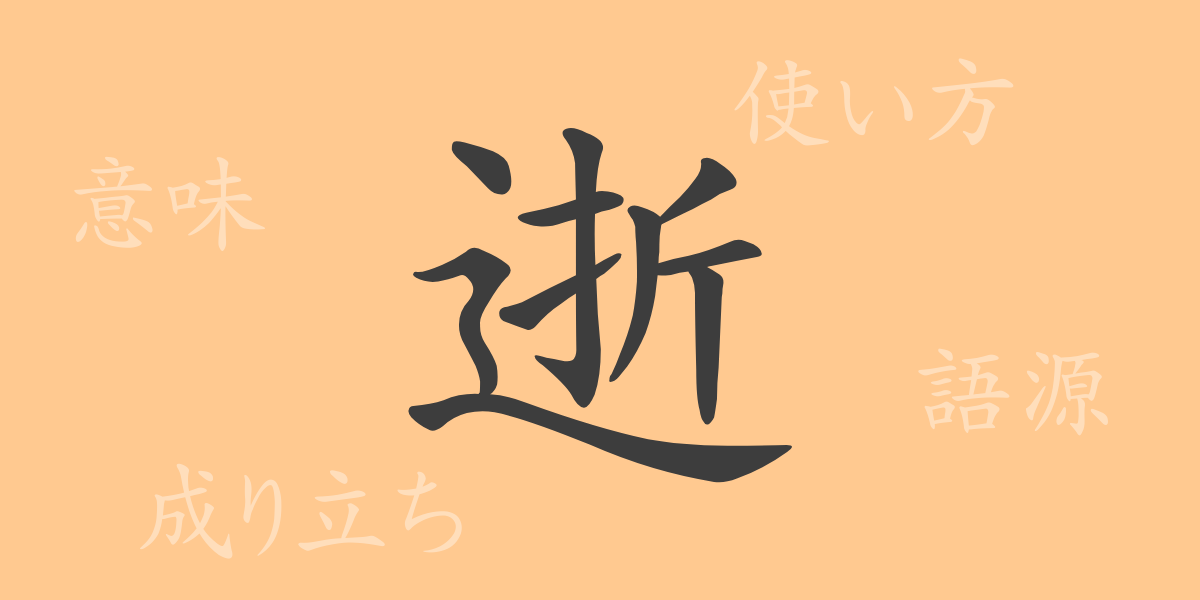Language evolves over time, deepening its meanings within the currents of culture and history. The Japanese kanji ‘逝’ (ゆく/いく) encapsulates many narratives within its form and significance. This article explores the origins, meanings, and usages of ‘逝’, extending to phrases and proverbs, delving into its profound world.
Origins of 逝
Tracing back to ancient China, the kanji ‘逝’ originally derived from pictographs representing the flow of water, symbolizing the passage of time and the transitions of life. The character portrays the continuous forward movement, akin to flowing water, evoking philosophical reflections on human life and death.
Meanings and Usages of 逝
‘逝’ is primarily used in Japanese to denote the passing of a person. It signifies not merely death but also embodies abstract concepts like the passage of time and transformation. Commonly employed in respectful language, it appears in expressions such as ‘逝去’ (death) and ‘旅立つ’ (to depart on a journey), enhancing its dignified use.
Readings, Stroke Count, and Radical of 逝
The kanji ‘逝’ possesses unique readings and characteristics in its Japanese usage:
- Readings: On’yomi ‘セイ’, Kun’yomi ‘ゆく’, ‘いく’
- Stroke Count: ‘逝’ consists of 11 strokes.
- Radical: The radical of ‘逝’ is ‘辵’ (しんにょう), associated with walking or advancing.
Phrases, Idioms, and Proverbs Using 逝
‘逝’ features in various phrases and idioms that carry deep emotive and philosophical connotations. For instance, ‘逝去’ refers to someone’s passing in a euphemistic manner, often interpreted as ‘being called to heaven.’ Furthermore, ‘逝年’ nostalgically reflects on the years that have passed.
Conclusion on 逝
Every kanji character reflects the culture and values of its people. ‘逝’ offers a window into how the Japanese perceive and articulate life and death, showcasing the depth of Japanese existential views. Through this article, we hope readers gain insight into the profound meanings of ‘逝’ and appreciate the beauty of the expressions it inspires.

























